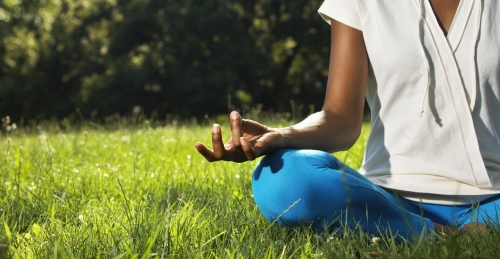Buddhism’s no-pressure approach to considering faith: ehi-passiko, or “come and see.” The Buddha dismissed standard avenues to faith: authority, scripture, logic, tradition. His essential idea? Check it out. If it works for you — if it enriches your life, makes it better — embrace it. If it doesn’t, drop it.
Addiction is a disease that affects faith, and I’m no exception to that. I’ve developed a cynical attitude. I don’t really believe in anything, and that’s not just a lack of trust in life, it’s a lack of trust in myself and in my own ability to tolerate life without diluting it with substances. I wonder if this seems strange to my normal (uhhh?) friends, how difficult it is for me to find value in my own experiences. People use for a myriad of complicated reasons. I can’t even pinpoint all of my ‘whys’ yet, but there’s certainly something true about there being a desire to escape my own reality.
Meditation, then, is nearly impossible for me. It’s an intensified version of unadulterated ‘me’ experience. Stopping diversions and activity is consistantly difficult, and I’d say this is true of our culture as a whole. We control our conscious experiences with books, TV, music, food, and the Interwebs, filling the moments with distraction from self. Meditation demands the opposite, a face-to-face encounter with silence and a quiet observation of the ebb and flow of thoughts. I suuuuuck at this. I don’t like my thoughts, and I don’t like to hang out with ’em. And yet, as I develop more mindful thinking, my experience continues to improve. It’s a slow process and I’m nowhere close to peace, but it’s working and so I’ll keep it. Ehi-passiko.


Brilliant.
er, i wouldn’t go that far, but thanks for reading. 🙂
Like my mom used to say “pull your knickers up and get on with it.” I’m just saying…
that’s not even relevant. you just wanted to say that, didn’t you?
So